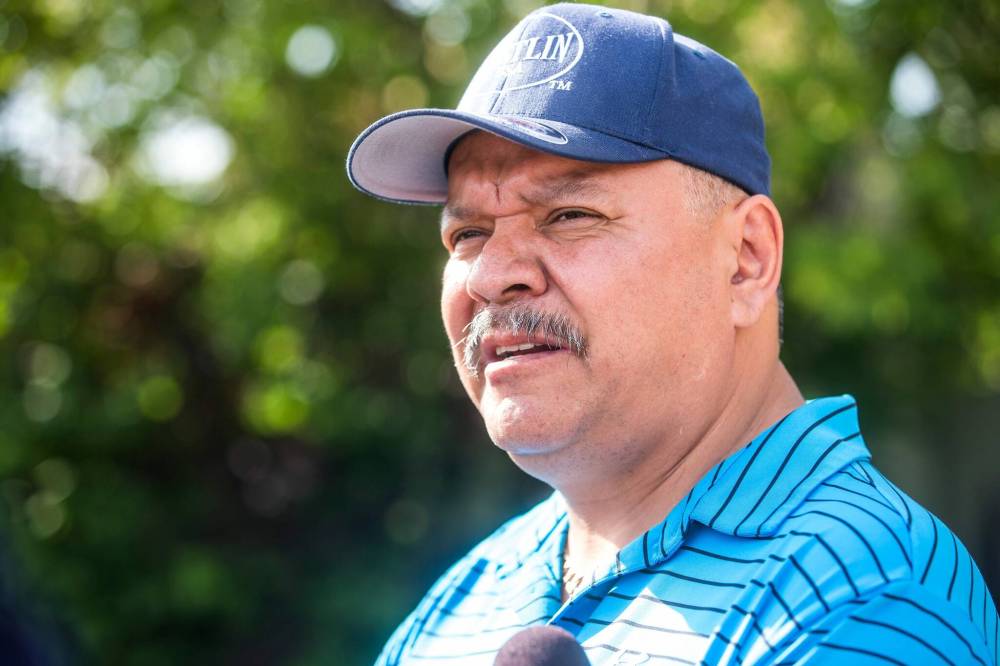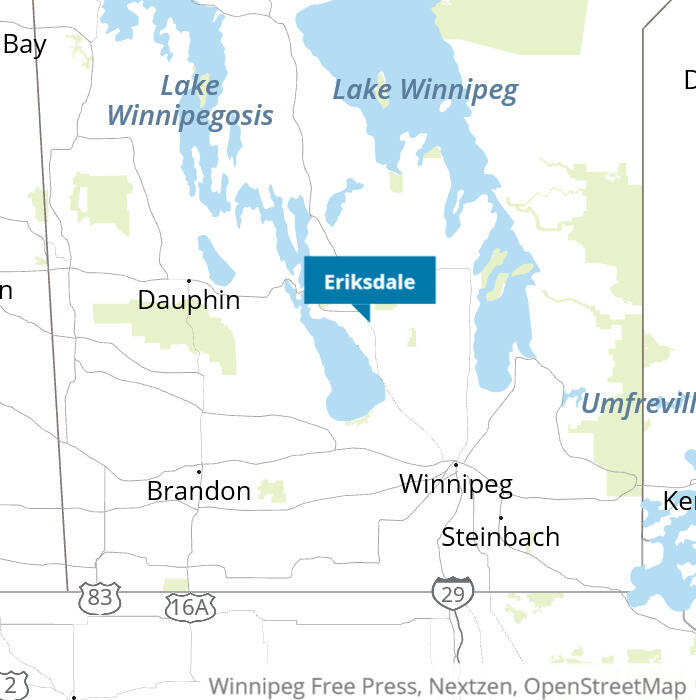‘Ridiculous for health care in Manitoba’: Eriksdale ER temporary closure ramps up rural concerns
Advertisement
Read this article for free:
or
Already have an account? Log in here »
To continue reading, please subscribe:
Monthly Digital Subscription
$0 for the first 4 weeks*
- Enjoy unlimited reading on winnipegfreepress.com
- Read the E-Edition, our digital replica newspaper
- Access News Break, our award-winning app
- Play interactive puzzles
*No charge for 4 weeks then price increases to the regular rate of $19.00 plus GST every four weeks. Offer available to new and qualified returning subscribers only. Cancel any time.
Monthly Digital Subscription
$4.75/week*
- Enjoy unlimited reading on winnipegfreepress.com
- Read the E-Edition, our digital replica newspaper
- Access News Break, our award-winning app
- Play interactive puzzles
*Billed as $19 plus GST every four weeks. Cancel any time.
To continue reading, please subscribe:
Add Free Press access to your Brandon Sun subscription for only an additional
$1 for the first 4 weeks*
*Your next subscription payment will increase by $1.00 and you will be charged $16.99 plus GST for four weeks. After four weeks, your payment will increase to $23.99 plus GST every four weeks.
Read unlimited articles for free today:
or
Already have an account? Log in here »
Hey there, time traveller!
This article was published 15/09/2022 (1180 days ago), so information in it may no longer be current.
A temporary closure of an Interlake hospital ER has prompted nearby First Nations communities to express concern about the future of local health care.
In response to the altered services at E.M. Crowe Memorial Hospital in Eriksdale, the Interlake Reserves Tribal Council stated this week it is “feeling neglected and discriminated against.”
The hospital emergency room (some 130 kilometres northwest of Winnipeg) will be closed until Sept. 26 because of an unplanned vacancy in the diagnostics department, the Interlake-Eastern Regional Health Authority confirmed.

MIKAELA MACKENZIE / WINNIPEG FREE PRESS FILES
Council chairman and Lake Manitoba Chief Cornell McLean said the closure will leave neighbouring First Nations without accessible care, despite the fact Ashern’s hospital remains open 40 km northeast of Eriksdale.
The tribal council, which represents six First Nations, issued a news release stating it wasn’t consulted on the move.
Council chairman and Lake Manitoba Chief Cornell McLean said the closure will leave neighbouring First Nations without accessible care, despite the fact Ashern’s hospital remains open 40 km northeast of Eriksdale. Cornell estimated it will affect as many as 15,000 people, including the communities of Pinaymootang, Little Saskatchewan, Lake Manitoba and Lake St. Martin.
McLean said he’s received letters of support from chiefs in the Interlake who want to meet with the provincial health department to talk about potential solutions to local staff shortages.
“There could be consultation rather than inconsideration, you know what I mean? There’s no talks at all, and the government speaks for reconciliation, meanwhile they’re taking things away,” McLean said Thursday.
He said he’s aware of the widespread problems with lack of ambulance staff and shortages of doctors and nurses. Wait times in Ashern are still far too long, despite additional beds being opened there, McLean said, prompting some residents to travel farther for emergency care.
“This is ridiculous for health care in Manitoba. We have to travel from town to town till we find a hospital, a doctor.”
Ambulances are being redirected to the nearest “or most appropriate” ER in light of Eriksdale’s closure, but inpatient admissions and primary care services in Eriksdale are continuing as usual, stated Marion Ellis, Interlake-Eastern chief executive officer.
“A physician is available in Interlake-Eastern RHA to take calls in Eriksdale’s emergency department, but without access to diagnostic services, emergency department services cannot be provided during this period,” Ellis stated.
The health authority is working with Shared Health on the diagnostics staffing shortage and expects to reopen after Sept. 26, the statement continued.
“Discussions with the local municipality and First Nation health directors regarding access to health care services are ongoing.”
Arnthor Jonasson, reeve of the Rural Municipality of West Interlake, which includes Eriksdale and Ashern, said he’s confident the hospital will reopen late this month as planned.

“We’ve been told there’s no plan to close anything permanently,” Jonasson said Thursday.
The Eriksdale ER had already been operating on limited hours. Community-based training programs for licensed practical nurses and lab technicians are necessary and work is underway to make that kind of education available in rural areas, Jonasson said.
“I have the same concerns as every community member out in the rural areas. There is a lack of staffing.”
Asked about the future of rural health care in Manitoba and the government’s plans in areas that have experienced recent hospital closures, Health Minister Audrey Gordon said she has been in touch with regional health authorities to work on reopening, specifically referencing closures in Prairie Mountain.
She said the government will work on “health human resources.”
“What I hope to see very, very soon is the reopening of those facilities,” she said during an unrelated news conference Wednesday.
“That’s our government’s goal, is to keep them open and to not have closures, and that’s why we continue to encourage our graduates from the various health professions to work in our rural communities. And individuals who live in those communities, who have deep roots in those communities, to consider the health profession, because we do need to properly staff those facilities.”
katie.may@freepress.mb.ca

Katie May is a general-assignment reporter for the Free Press.
Our newsroom depends on a growing audience of readers to power our journalism. If you are not a paid reader, please consider becoming a subscriber.
Our newsroom depends on its audience of readers to power our journalism. Thank you for your support.


